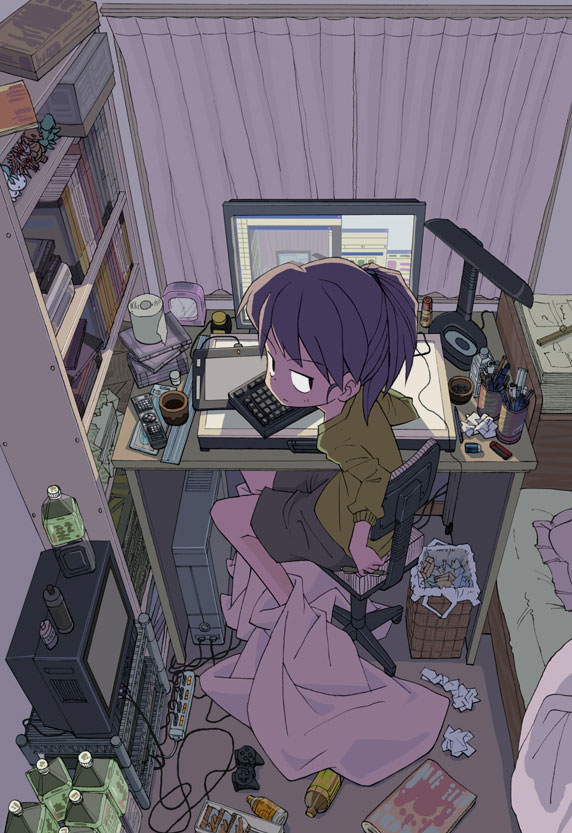Oh boy, the new Oxford Dictionary of English is out! You know what that means… it’s time for bloggers like me to pad out their slow news days by overanalyzing any new pop culture terms Oxford added. Let’s see, this edition’s new words include staycation, vuvuzela, bromance, hikikomori…
Wait, hikikomori? Seriously?
hikikomori (hi·ki·ko·mo·ri)
Pronunciation: /hiˌkēkəˈmôri/
noun (plural same)
(in Japan) the abnormal avoidance of social contact, typically by adolescent males
a person who avoids social contactOrigin: Japanese, literally ‘staying indoors, (social) withdrawal’
Wow. I guess the hikki phenomenon is so famous that even Oxford had to take notice. Their definition is surprisingly accurate too. Color me impressed, Oxford. And here I thought your dictionary was woefully ignorant of pop culture trends. I wonder what they have to say about other anime-related terms…
Find out more after the break!
otaku (o·ta·ku)
Pronunciation: /ōˈtäko͞o/
noun (plural same)
(in Japan) a young person who is obsessed with computers or particular aspects of popular culture to the detriment of their social skillsOrigin: Japanese, literally ‘your house’, alluding to the reluctance of such young people to leave the house
Once again, surprisingly accurate. It would have been nice if they had added a footnote about the American meaning of otaku (i.e. the anime eqivalent of ‘Trekkie‘), but they nailed the original Japanese meaning of the word just fine. Nice!
anime (an·i·me)
Pronunciation: /ˈanəˌmā/
noun
Japanese movie and television animation, often having a science fiction theme and sometimes including violent or explicitly sexual material. Compare with mangaOrigin: 1980s: Japanese
What. The. Hell.
Seriously? Oxford, why did you feel the need to add the qualifiers ‘science fiction,’ ‘violent’ and ‘sexual’ to that definition? That reads like some boneheaded American’s stereotypical misconception of anime, not something that belongs in a respected dictionary! Does the entry on movie mention pornography, slasher or exploration films? Of course not! Does the entry on literature mention Twilight or Harry Potter? Perish the thought! So why is anime characterized by a small fraction of its overall content?
Okay, so maybe anime is notorious for hentai and giant robots. I’ll admit that much. But marginalizing an entire medium because of that is just ignorant! The most popular anime in the United States right now are Naruto, One Piece, and the indomitable Dragon Ball Z. None of those shows are sci-fi, and only Naruto has what could be considered “explicitly sexual content,” if you count the Sexy Jutsu. Hell, even that is stretching incredulity. Furthermore, the highest-rated TV anime in Japan are either shonen series or kids shows! Seriously, Oxford, I expected better from you. Did your “research” merely consist of walking into a Best Buy and glancing over the anime section? Even Wikipedia’s entry on anime is better than this tripe!
You know what? Two can play at this game. Here’s a term I’d like to see added to the next edition of the ODE.
Oxford Dictionary of English (Ox·ford Dic·tion·ar·y of Eng·lish)
Pronunciation: /ˈäksfərd ˈdikSHəˌnerē əv ˈiNG(g)liSH/
noun
An anachronistic tome which purports to be an authority on the English languageOrigin: Written by a bunch of grumpy old professors, whose attempts to make their work seem more contemporary instead show them to be increasingly pathetic and out-of-touch
Think I’m being too harsh? Hey, I love anime, and you know what they say… all’s fair in love and grammar war.
[Source]


